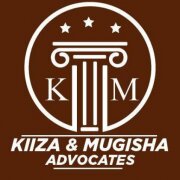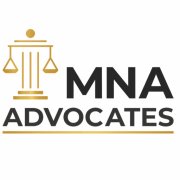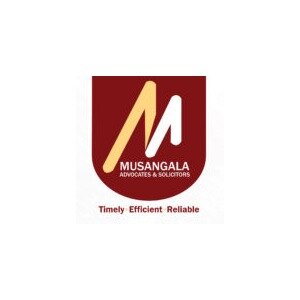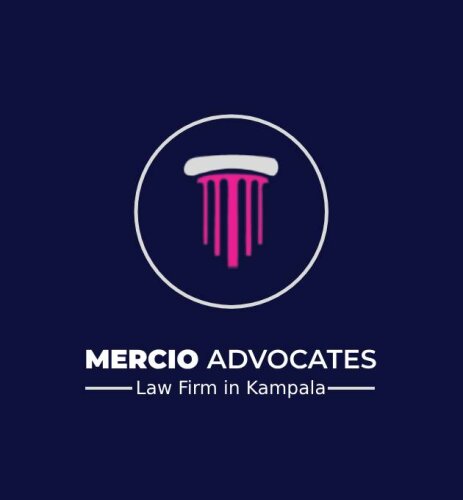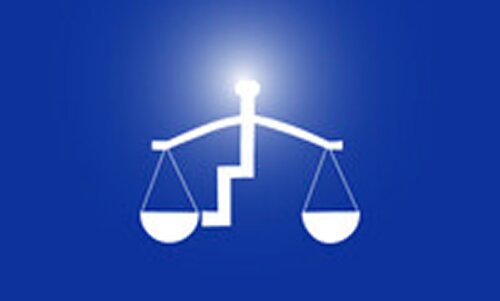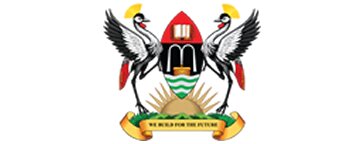Best Native People Lawyers in Uganda
Share your needs with us, get contacted by law firms.
Free. Takes 2 min.
Or refine your search by selecting a city:
List of the best lawyers in Uganda
About Native People Law in Uganda
Uganda is home to a diverse range of indigenous communities, each with its own distinct culture, language, and traditions. Known collectively as Native People or Indigenous Peoples, these groups include the Batwa, Benet, Ik, and others who have historically faced marginalization and socio-economic challenges. The legal matters concerning Native People in Uganda often revolve around land rights, cultural preservation, and social welfare. The Ugandan constitution and various international treaties recognize and aim to protect the rights of these indigenous groups, although challenges persist in the effective implementation of these laws.
Why You May Need a Lawyer
Legal advice can be crucial in a variety of situations involving Native People in Uganda. You may require a lawyer if you are dealing with land disputes, especially those involving ancestral lands. If you're part of a native community that is facing evictions, loss of access to natural resources, or other encroachments on land, legal assistance can help navigate the complexities of property rights. Additionally, lawyers can advocate for the protection of cultural rights, assist in cases of discrimination, and provide guidance on accessing governmental and international support. Legal representation is also essential in instances where community rights have been violated under national or international law.
Local Laws Overview
Local laws pertinent to Native People in Uganda focus primarily on land rights and cultural preservation. The 1995 Ugandan Constitution recognizes the rights of indigenous communities to practice and preserve their cultural heritage. However, specific legislation, such as the Land Act, is designed to address land ownership and security issues but is often criticized for insufficiently protecting indigenous lands. Furthermore, Uganda is a signatory to international agreements like the United Nations Declaration on the Rights of Indigenous Peoples (UNDRIP), which affirms the rights of indigenous communities to their lands, territories, and resources.
Frequently Asked Questions
What are the main indigenous groups in Uganda?
The main indigenous groups in Uganda include the Batwa, Benet, Ik, Karamojong, Basongora, Tepeth, and others who have historically occupied specific regions within the country.
What challenges do Native People in Uganda face?
Challenges include land dispossession, lack of political recognition, limited access to education and healthcare, and cultural erosion due to external influences and displacement.
Are Native People in Uganda recognized legally?
Yes, under the Ugandan Constitution, Native People are recognized, but there are ongoing challenges in ensuring the effective implementation of their legal rights and protections.
What rights do Native People have regarding land?
Native People in Uganda have the right to own, use, and manage their ancestral lands, but these rights are often challenged by external parties or inadequately protected by legislation.
How do international laws protect Native People in Uganda?
International treaties like UNDRIP provide frameworks for protecting the rights of indigenous peoples, including rights to land, culture, and self-determination.
What role does the Ugandan government play in supporting Native Peoples?
The Ugandan government is responsible for implementing policies and laws that protect Native People, although execution is often hampered by bureaucratic and political obstacles.
Can Native People in Uganda access legal aid?
Yes, several non-governmental organizations offer legal aid to indigenous communities, although access may be limited by resources and regional availability.
How can Native People assert their land rights?
Native People can assert their land rights through legal challenges, seeking assistance from NGOs, and advocating for policy changes at local and national levels.
What is the impact of development projects on indigenous lands?
Development projects can lead to displacement and environmental degradation of indigenous lands, often without proper compensation or consent from the affected communities.
How can cultural rights be preserved?
Cultural rights can be preserved through legal protection of traditional customs, languages, and practices, as well as raising awareness and promoting cultural education.
Additional Resources
For those seeking more information or assistance related to Native People in Uganda, several resources may be helpful:
- Uganda Human Rights Commission (UHRC): Engages in the promotion and protection of human rights in the country.
- National Indigenous Women's Forum (NIWF): Focuses on the rights and welfare of indigenous women.
- Forest Peoples Programme (FPP): Works to support the rights of forest-dwelling indigenous peoples.
- Minority Rights Group International (MRG): Provides advocacy and legal support to minority communities worldwide, including those in Uganda.
Next Steps
If you need legal assistance concerning Native People issues in Uganda, consider taking the following steps:
- Identify the specific legal issues you are facing to find the most appropriate legal assistance.
- Reach out to local NGOs and community organizations that specialize in indigenous rights to seek guidance and support.
- Consult with a lawyer who has experience in indigenous people’s law to discuss your situation and potential legal actions.
- Attend community meetings or advocacy workshops to understand your rights better and connect with others facing similar issues.
- Keep documentation of any correspondence or legal matters relevant to your case for reference during legal proceedings.
Lawzana helps you find the best lawyers and law firms in Uganda through a curated and pre-screened list of qualified legal professionals. Our platform offers rankings and detailed profiles of attorneys and law firms, allowing you to compare based on practice areas, including Native People, experience, and client feedback.
Each profile includes a description of the firm's areas of practice, client reviews, team members and partners, year of establishment, spoken languages, office locations, contact information, social media presence, and any published articles or resources. Most firms on our platform speak English and are experienced in both local and international legal matters.
Get a quote from top-rated law firms in Uganda — quickly, securely, and without unnecessary hassle.
Disclaimer:
The information provided on this page is for general informational purposes only and does not constitute legal advice. While we strive to ensure the accuracy and relevance of the content, legal information may change over time, and interpretations of the law can vary. You should always consult with a qualified legal professional for advice specific to your situation.
We disclaim all liability for actions taken or not taken based on the content of this page. If you believe any information is incorrect or outdated, please contact us, and we will review and update it where appropriate.
Browse native people law firms by city in Uganda
Refine your search by selecting a city.



